Related Research Articles
Dance in Quebec includes dances that are specific to the province of Quebec, Canada, it comprises traditional group, couple, and solo dance as well as contemporary jazz, ballet, and modern dance. There are a number of dance companies and dance schools. Quebec's most renowned organizations are Les Ballets Jazz de Montréal, Les Grands Ballets Canadiens de Montréal as well as the contemporary dance crew La La La Human Steps, directed by the choreographer Édouard Lock and his emblematic dancer Louise Lecavalier.
André Martinet was a French linguist, influential due to his work on structural linguistics. In linguistic theory, Martinet is known especially for his studies on linguistic economy and double articulation.
Music semiology (semiotics) is the study of signs as they pertain to music on a variety of levels.
The confidant is a character in a story whom a protagonist confides in and trusts. Confidants may be other principal characters, characters who command trust by virtue of their position such as doctors or other authority figures, or anonymous confidants with no separate role in the narrative.
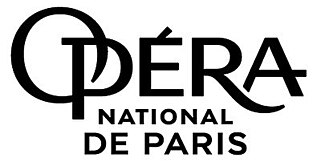
The Paris Opera is the primary opera and ballet company of France. It was founded in 1669 by Louis XIV as the Académie d'Opéra, and shortly thereafter was placed under the leadership of Jean-Baptiste Lully and officially renamed the Académie Royale de Musique, but continued to be known more simply as the Opéra. Classical ballet as it is known today arose within the Paris Opera as the Paris Opera Ballet and has remained an integral and important part of the company. Currently called the Opéra national de Paris, it mainly produces operas at its modern 2,723-seat theatre Opéra Bastille which opened in 1989, and ballets and some classical operas at the older 1,979-seat Palais Garnier which opened in 1875. Small scale and contemporary works are also staged in the 500-seat Amphitheatre under the Opéra Bastille.

Gasparo Angiolini, real name Domenico Maria Gasparo, son of Francesco Angiolini and Maria Maddalena Torzi, was an Italian dancer, choreographer and composer. He was born in Florence and died in Milan.

Jules Séglas was a French psychiatrist who practiced medicine at the Bicêtre and Salpêtrière Hospitals in Paris.
Intercultural theater, also known as cross-culturaltheatre, may transcend time, while mixing and matching cultures or subcultures. Mixing and matching is the unavoidable process in the making of inner connections and the presentations of interculturalities. The majority of the works in intercultural theatre deal basically with thinking and doing around the themes, stories, pre-performative or performative concepts of Asian classical theatre or traditional performing arts forms and practices, mixing and matching the concepts or the ideas of the foreign. After the well-known success of Peter Brook's production of the Mahabharata, the trend has been evolving tremendously around the globe and many the cultural institutions of many governments have become directly interested in pushing the boundaries of intercultural senses and sensitivities by financially investing on new theatrical productions, university research, conferences and fellowships

Jacques Bertin was a French cartographer and theorist, known from his book Sémiologie Graphique, published in 1967. This monumental work, based on his experience as a cartographer and geographer, represents the first and widest intent to provide a theoretical foundation to Information Visualization, with his most lasting contribution being his set of visual variables that can be used to construct map symbols and other graphical techniques one of then being the Bertin Projection, an innovative map projection type.
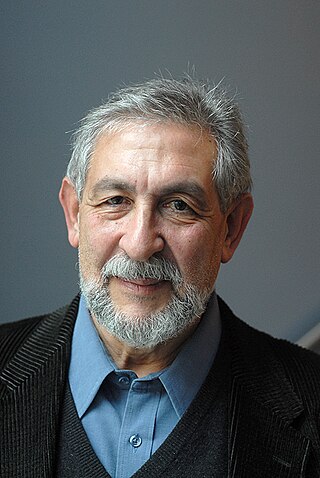
Daniel Dayan is a French social scientist born in 1943. A fellow of the Marcel Mauss Institute at Ecole des Hautes Etudes en Sciences Sociales and the Levinas European Institute, Dayan has been Director of Research in Sociology at Centre National de la Recherche Scientifique, professor of Media Theory at the Institut d'Etudes Politiques Paris, and a Hans Speier Visiting Professor at the New school for Social Research.
Hubert Damisch, was a French philosopher specialised in aesthetics and art history, and professor at the École des Hautes Études en Sciences Sociales (EHESS) in Paris from 1975 until 1996.
Maurice Vaïsse is a French historian specialised in international relations and Defence. He is an editorial board member on Journal of Intelligence and Terrorism Studies.
Georges-Elia Sarfati is a philosopher, linguist, poet, and an existentialist psychoanalyst, author of written works in the domains of ethics, Jewish thought, social criticism, and discourse analysis. He has translated Viktor E. Frankl. He is the grand-nephew of the sociologist Gaston Bouthoul.
Josette Rey-Debove, was a French lexicographer and semiologist. She was the first female lexicographer in France, and held many prominent posts in this field, where she used her influence to promote feminist changes to French language usage. Her husband, Alain Rey, was also her colleague.
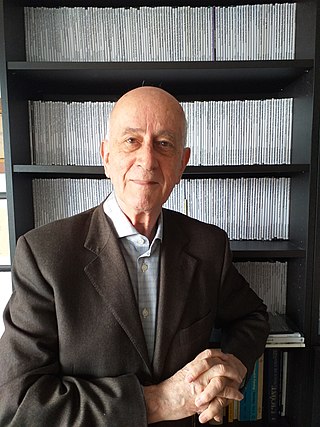
Jacques Aumont is a French academic and writer on film theory.
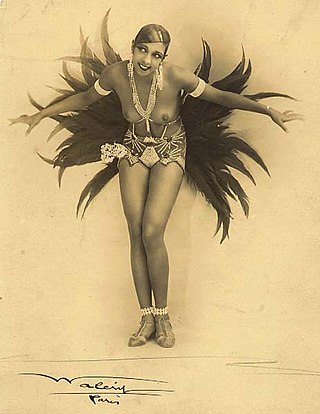
The Années folles was the decade of the 1920s in France. It was coined to describe the social, artistic, and cultural collaborations of the period. The same period is also referred to as the Roaring Twenties or the Jazz Age in the United States. In Germany, it is sometimes referred to as the Golden Twenties because of the economic boom that followed World War I.

Jean Lambert-wild is a white clown and theatre-maker born in 1972 in Réunion. Since January 2021, he is the artistic director of the Coopérative 326.
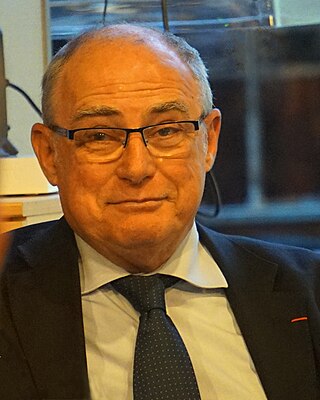
Maurice Sartre is a French historian, an Emeritus professor of ancient history at the François Rabelais University, a specialist in ancient Greek and Eastern Roman history, especially the Hellenized Middle East, from Alexander to Islamic conquests.
André Gaudreault is a Canadian film historian and theorist who holds the Canada Research Chair in Film and Media Studies.

Dominique Maingueneau is a French linguist, emeritus Professor at Sorbonne University (Paris). His research focuses on discourse analysis. It associates a pragmatic outlook on discourse with linguistic «enunciation» theories and some aspects of Michel Foucault's line of thought.
References
- ↑ Patrice Pavis, 'Theatre Analysis: Some Questions and a Questionnaire', New Theatre Quarterly, 1 (1985), 208–12; doi : 10.1017/S0266464X00001573.
- ↑ Mueller-Vollmer, Kurt; Irmscher, Michael (1998). Translating literatures, translating cultures: new vistas and approaches in literary studies. Stanford University Press.
- ↑ Presentation of the book on the publisher web site